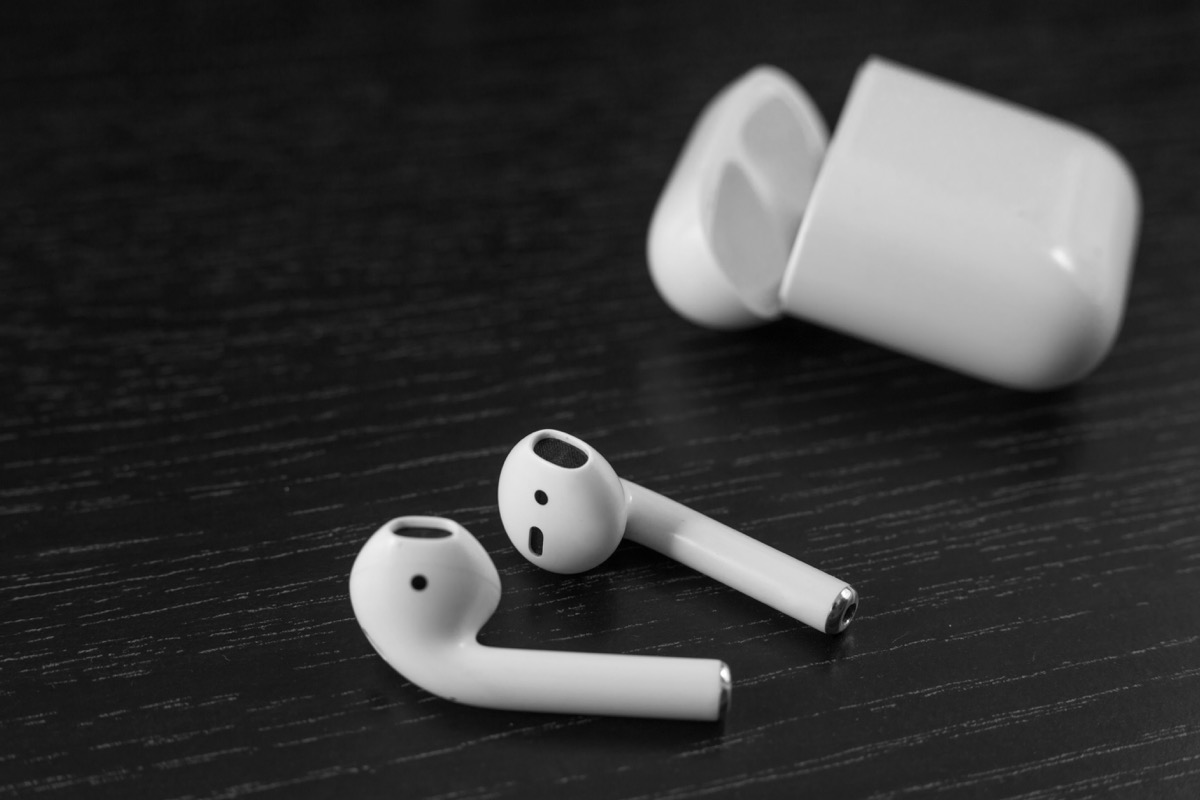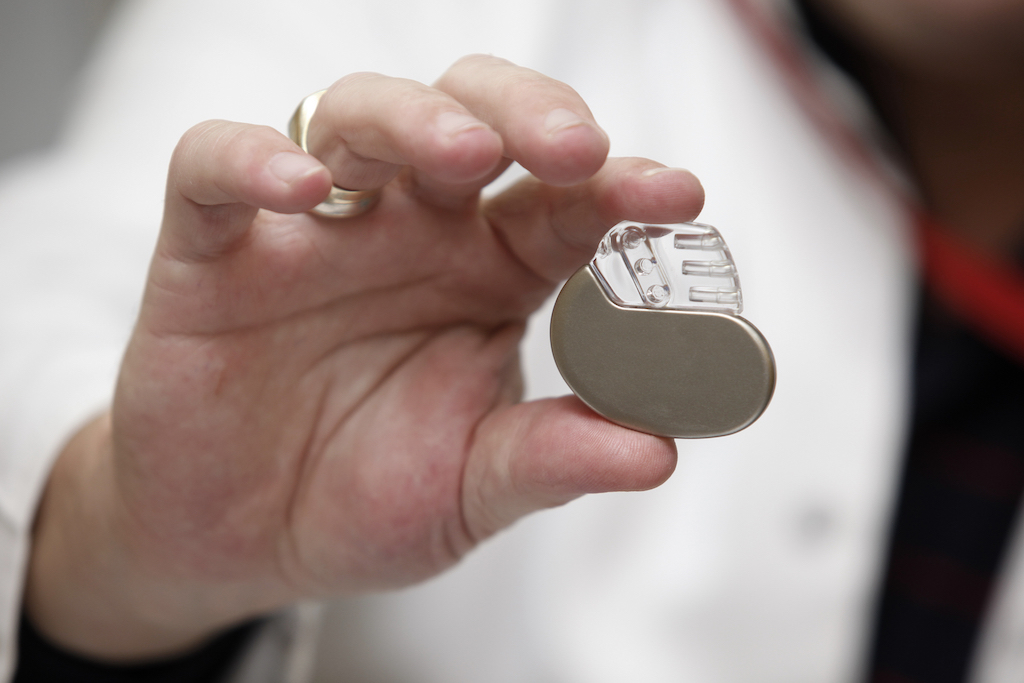RELATED: If You’re Charging Your iPhone Like This, Apple Says Stop Immediately. In a support document published on June 25, Apple warned that the magnets used in many of their products could potentially interfere with implanted medical devices such as pacemakers and defibrillators. The company advises that a wide list of their devices should be kept “a safe distance away from your medical device” of more than six inches and more than 12 inches when it’s wirelessly charging. The company also suggests: “If you suspect that your Apple product is interfering with your medical device, stop using your Apple product and consult your physician and your medical device manufacturer.” The warning covers a wide range of Apple products where magnets are commonly used to secure charger connections, device lids, and other features. The long list includes AirPods and their charging cases, Apple Watch and certain accessories, HomePod, iPad and certain accessories, specific models of Beats headphones, certain Mac computers and laptops, and the iPhone 12 with MagSafe and its accessories. Apple also points out in the post that while other Apple devices contain magnets, they are “unlikely to interfere with medical devices.” They urge anyone with questions or concerns about any products they own to contact their doctor and medical device manufacturer immediately.ae0fcc31ae342fd3a1346ebb1f342fcb RELATED: If You See This Message on Your Roku, Report It Immediately, Experts Say.
The warning comes just weeks after the American Heart Association (AHA) published a small study that tested the iPhone 12’s effects on pacemakers and defibrillators. After placing the smartphone close to devices that were both “in vivo” and “ex vivo”—meaning implanted in a patient and recently unboxed, respectively—it was found that 11 out of 14 devices experienced interference. “We have always known that magnets can interfere with cardiac implantable electronic devices, however, we were surprised by the strength of the magnets used in the iPhone 12 magnet technology,” Michael Wu, MD, the lead study investigator and a cardiologist at Lifespan Cardiovascular Institute and Assistant Professor of Medicine at Brown University, said in a statement. “In general, a magnet can change a pacemaker’s timing or deactivate a defibrillator’s lifesaving functions, and this research indicates the urgency for everyone to be aware that electronic devices with magnets can interfere with cardiac implantable electronic devices.” The study authors pointed out that iPhone owners may inadvertently put themselves in danger simply by carrying it around in a seemingly harmless way. “People often put their smartphones in a breast pocket over a device which can be in close proximity to [cardiac implantable electronic devices] CIEDs. This can lead to asynchronous pacing or disabling of antitachycardic therapies,” the researchers wrote. As a result, the AHA reminded the public that there are certain ways to use your devices to keep your heart safe. “The American Heart Association and manufacturers of pacemakers and implantable cardioverter defibrillators have long recommended that cell phones be used in the ear opposite the side of the body of an implanted device and that the cell phones be kept at least 10 cm away from the device, therefore not in a shirt or coat pocket on the same side as the cardiac device,” Mark A. Estes, MD, professor of medicine and director of the Clinical Cardiac Electrophysiology Fellowship Program at the Heart and Vascular Institute of the University of Pittsburgh School of Medicine, said in the statement.



